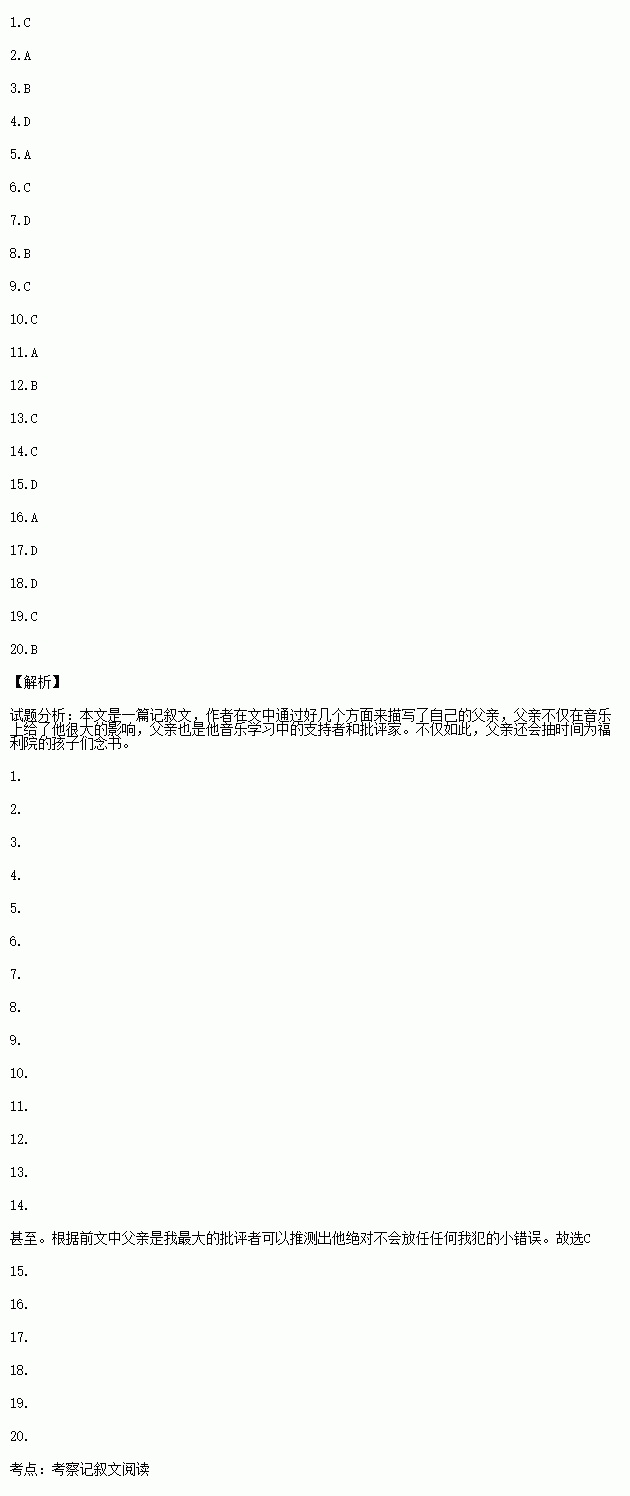题目内容
My dad has been driving a truck for almost his entire life .He's usually all the weekdays and comes home only at weekends.Sometimes he stays for two weeks at a time. I don't get to see him as often as I wish,we remain very .
My dad is the type of person who doesn't let you up anything that you start.When I was eleven,my father bought me a piano.At first I was so about it that I would spend hours and hours learning how to play.Then it got .I was so tired of it that I asked if I could stop.Much as I tried,he me to go on.Now I have been playing for almost five years.I love it and I'm glad I my dad's advice.
My dad is talented,for he has been playing the guitar for over 20 years.Under his influence,I also like now.Sometimes my dad can be my biggest .He makes me smile even when I lose in a talent show sometimes he can be my biggest critic (批评家).He ignore the small mistakes I make.He encourages me never to lose because he thinks that all my dreams will one day.
My dad is generous.E very Thursday night,he to read to the children at a children's club.When he reads,their light up with curiosity about what will happen next. feel of having a person in my family who cares enough to volunteer to .
I love my dad with all my heart.He's a hero in my heart and the most wonderful person in the world.

1.A.on B.with C.out D.in
2.A.away B.home C.inside D.alone
3.A.In case B.Even though C.If only D.As if
4.A.polite B.kind C.different D.close
5.A.give B.put C.take D.speed
6.A.nervous B.anxious C.crazy D.familiar
7.A.rough B.difficult C.disappointing D.boring
8.A.promised B.persuaded C.reminded D.suggested
9.A.received B.challenged C.took D.listened
10.A.physically B.typically C.musically D.exactly
11.A.composing B.dancing C.writing D.drawing
12.A.director B.supporter C.scholar D.sponsor
13.A.however B.so C.and D.still
14.A.ever B.often C.never D.even
15.A.aim B.dream C.strength D.heart
16.A.come true B.take risks C.pay off D.let out
17.A.rejects B.likes C.intends D.offers
18.A.bodies B.arms C.hands D.faces
19.A.jealous B.optimistic C.proud D.happy
20.A.help B.read C.work D.Drive

